You hit the lights, close your eyes, and boom — just like that, eight hours of your life goes by in the wink of an eye. But in real time it’s not that simple. While we doze, our brain undergoes intense activity as it passes from stage to stage and cycle to cycle. At times, our brain is actually more active while we sleep than when we’re awake.
So why should you care about the science behind snoozing? Understanding your sleep cycles allows you to refine and perfect your rest. It’s part of being sleep-conscious.
Here’s exactly what happens during each sleep cycle — and why it matters for your tomorrow.
In the past few years doctors and health gurus alike have been advocating for an increased emphasis on sleep as a fundamental part of wellness and a healthy lifestyle.
We still appreciate Freudian dream analysis, but we’ve come a long way since Hypnos and Morpheus. If you want to improve the way you sleep, the first step is understanding how it works.
So tuck in and get ready for a bedtime story, we’re going to take you on a ride through all three stages of sleep.
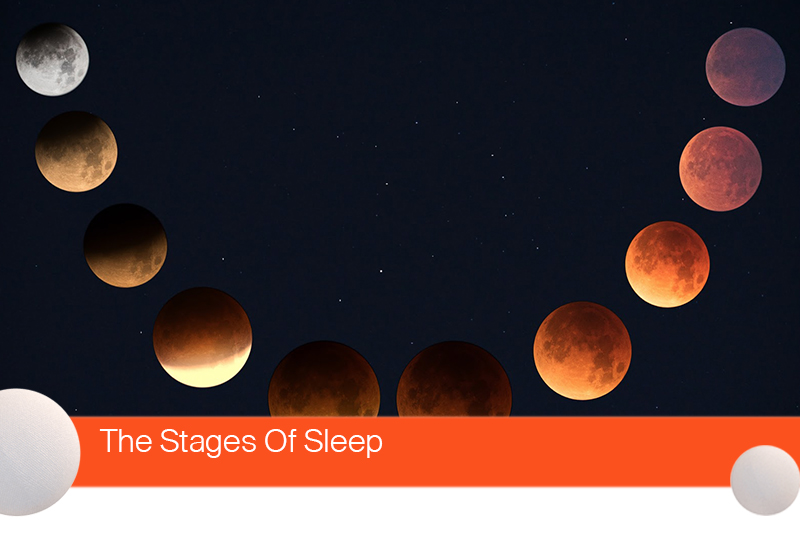
The stages of sleep are divided into two primary components, Non-REM (NREM) sleep (comprised of stages 1 to 3), and Rapid Eye Movement (REM) sleep.
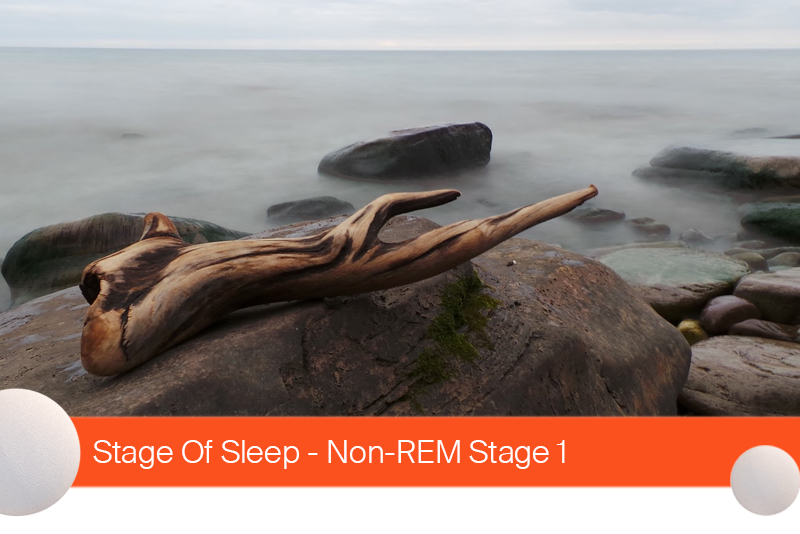 NREM stage 1 sleep occurs when we are drifting in and out of sleep. This is the time when the slightest stimuli such as sound or movement can jolt you awake from your shallow slumber. It’s in this stage where you might experience small, sudden muscle contractions followed by that eerie feeling falling, also known as ‘hypnic jerks’.
NREM stage 1 sleep occurs when we are drifting in and out of sleep. This is the time when the slightest stimuli such as sound or movement can jolt you awake from your shallow slumber. It’s in this stage where you might experience small, sudden muscle contractions followed by that eerie feeling falling, also known as ‘hypnic jerks’.
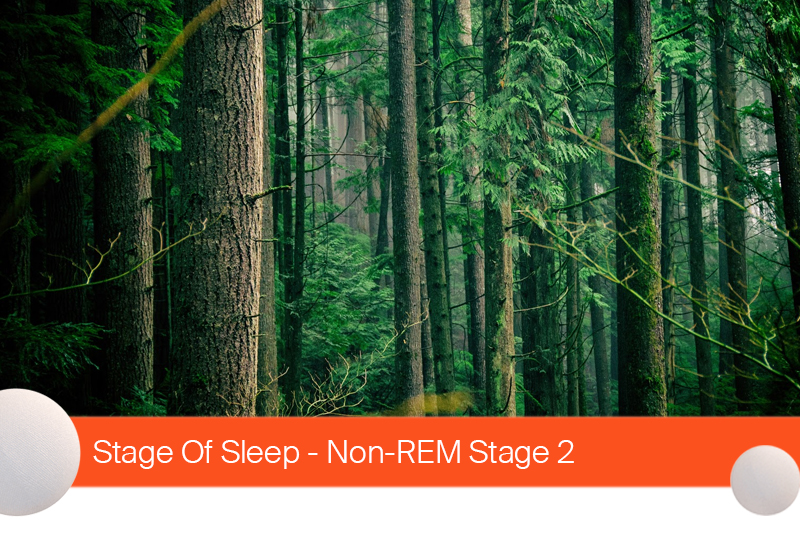 In NREM stage 2 sleep, our eye movements cease and our brain waves slow down with occasional bursts of rapid brain waves exhibiting a sawtooth pattern. During stage 2 your body temperature starts to drop as your heart rate slows in preparation for deep sleep. It’s not as easy to wake someone up while they’re in this stage of sleep, but things get a little heavier later on in the night.
In NREM stage 2 sleep, our eye movements cease and our brain waves slow down with occasional bursts of rapid brain waves exhibiting a sawtooth pattern. During stage 2 your body temperature starts to drop as your heart rate slows in preparation for deep sleep. It’s not as easy to wake someone up while they’re in this stage of sleep, but things get a little heavier later on in the night.
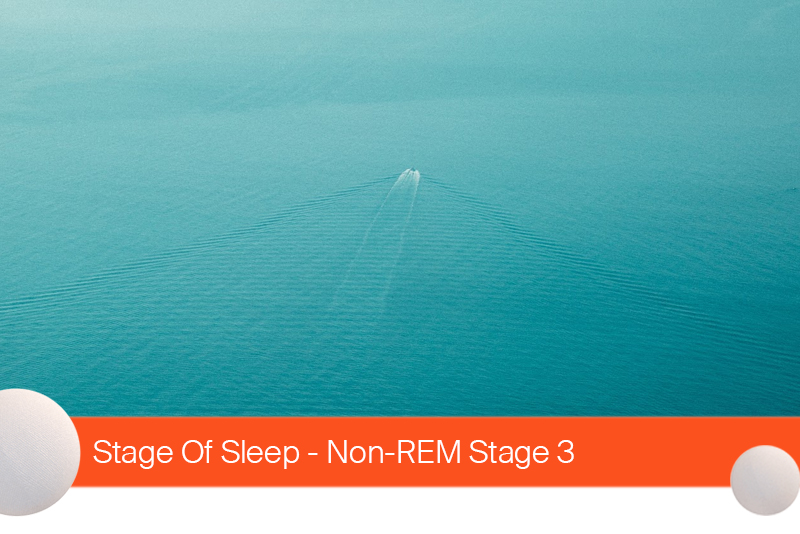 During NREM stage 3 A.K.A. the ‘deep sleep stage’ or ‘delta sleep’, our brain waves function at their slowest frequency and deepest amplitudes. It’s during this stage of sleep that our body recovers from the day and prepares for the morning ahead.
During NREM stage 3 A.K.A. the ‘deep sleep stage’ or ‘delta sleep’, our brain waves function at their slowest frequency and deepest amplitudes. It’s during this stage of sleep that our body recovers from the day and prepares for the morning ahead.
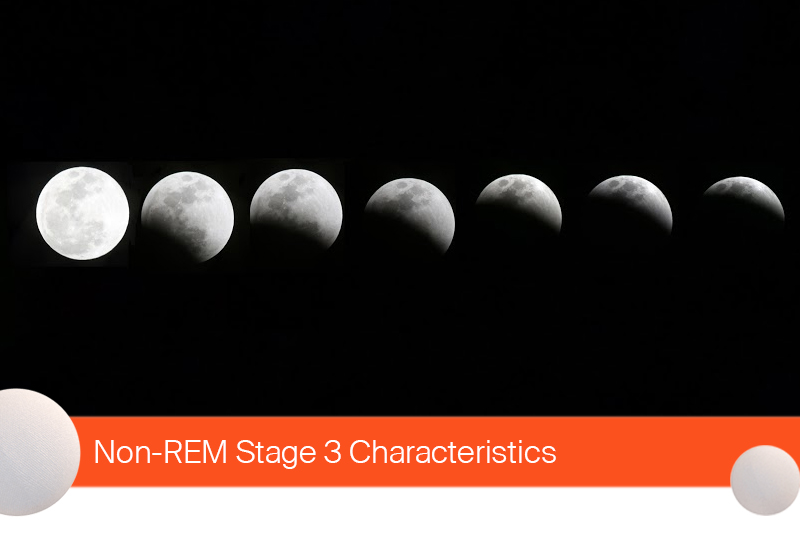 People in the deep sleep stage are difficult to rouse and are entirely disengaged from their environments.
People in the deep sleep stage are difficult to rouse and are entirely disengaged from their environments.
During this stage of sleep the body consolidates new memories and repairs and heals itself at the cellular level. During deep sleep the pituitary gland releases human growth hormone.
This is also the stage wherein sleeping disorders called parasomnias manifest, like sleepwalking.
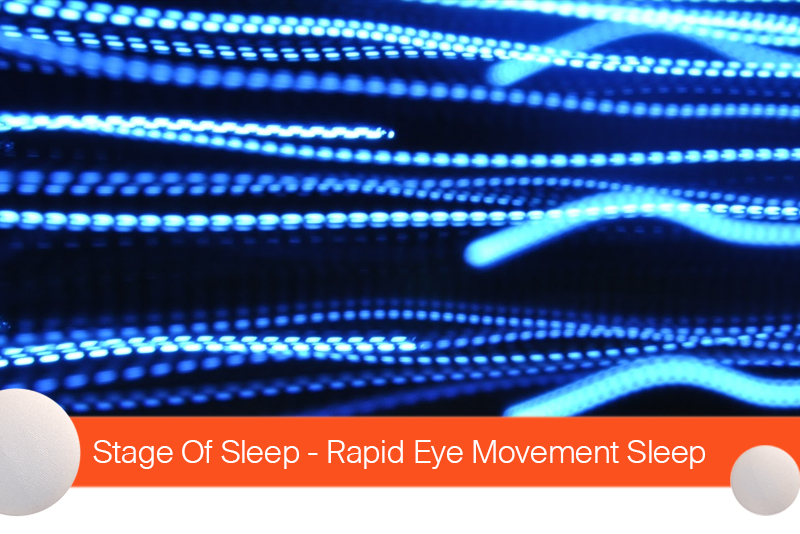 REM Sleep occurs just after the NREM stage 3 and was discovered by scientists in the 1950s. The most famous of the sleep cycles, REM sleep is the time of the night when you begin to dream.
REM Sleep occurs just after the NREM stage 3 and was discovered by scientists in the 1950s. The most famous of the sleep cycles, REM sleep is the time of the night when you begin to dream.
The REM stage exhibit all the brain waves of an awake person, however not all neurons are on and running during this stage. It is also referred to as the paradoxical stage as scientists and researchers try to understand the complex hybrid characteristics of sleep. It exhibits both, but not all NREM sleep and wake-time qualities.
During REM sleep, our amygdala, which is the center of a person’s emotions, is at its most active. This could explain the strong feelings we associate with our dreams.
Similar to NREM stage 3 sleep, we spend less time in the REM stage as we grow older and spend more time sleeping in stage 2.
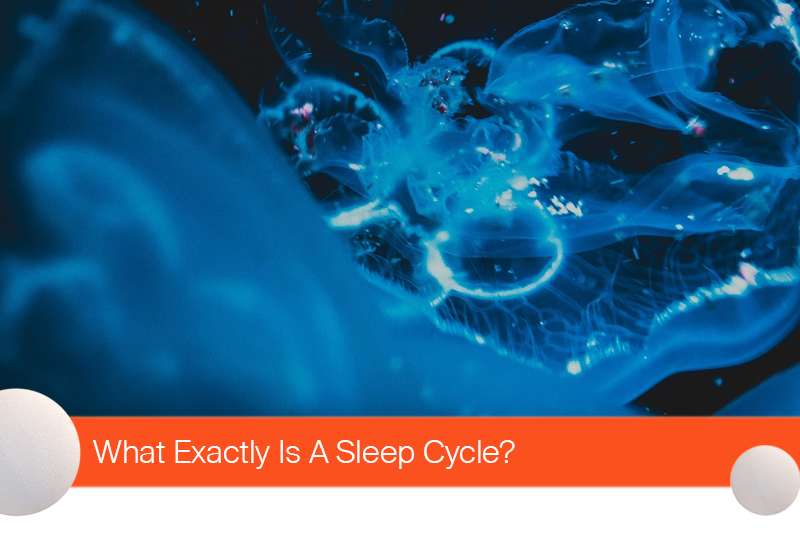
A sleep cycle is not as simple as putting together stages 1-3 and the REM cycle 4-6 times a night. As the night progresses, the amount of time we spend in each stage changes. During the first 2-3 sleep cycles, we spend the majority of time in deep NREM sleep. But during the final 2-3 cycles we spend much more time in REM sleep and lighter NREM sleep.
How much REM and NREM sleep we get depends on what time of the night (or day), it is. People tend to experience more NREM sleep in the earlier hours of the night (11pm-3am), and more REM sleep during the morning hours (3am-7am).
A sleep cycle will typically take 1.5 to 2 hours to complete, with the first sleep cycle usually lasting 90 minutes. Succeeding cycles usually take 100 to 120 minutes.
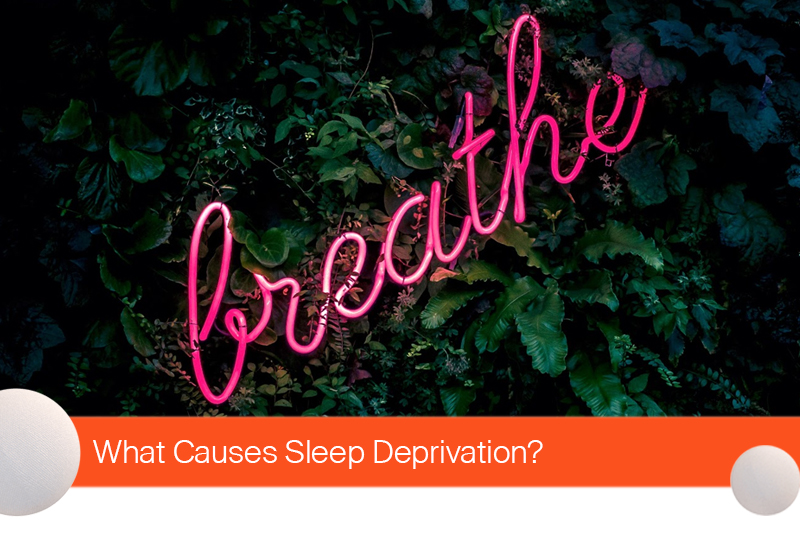
When we don’t complete our sleep cycles or our sleep is interrupted, especially during the deep sleep stage when interruption can lead us to becoming sleep deprived.
This is why after weeks or even days of not having enough sleep, we feel run-down or weary. Good sleep health is essential to our total well being.
The American Academy of Sleep Medicine defines sleep deprivation as “when an individual fails to get enough sleep.” It sounds simple enough, but the effects on our daily lives can be both severe and widespread. Roughly 20% of adults suffer from sleep deprivation.
The signs of sleep deprivation may include:
- Irritability
- Increased fatigue
- Lack of focus and concentration
- Poor coordination, reflex, and attention
- Forgetfulness
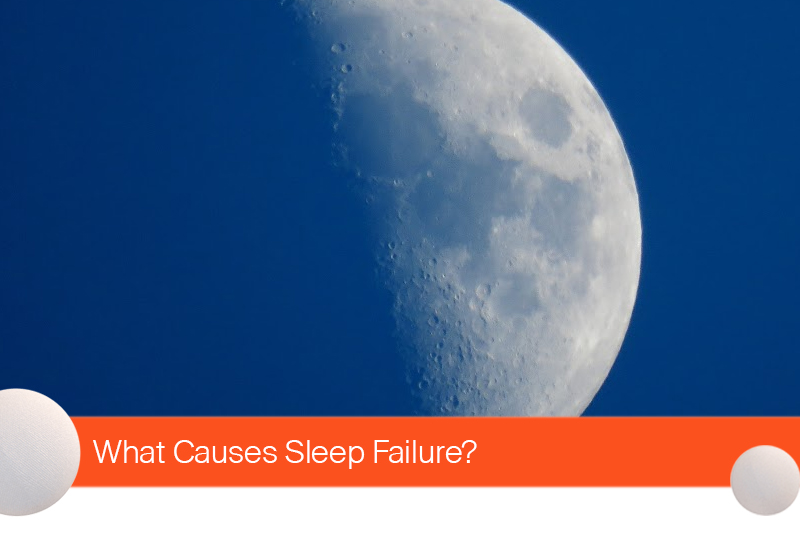
When we don’t complete our sleep cycles or our sleep is interrupted, especially during the deep sleep stage when interruption can lead us to becoming sleep deprived.
This is why after weeks or even days of not having enough sleep, we feel run-down or weary. Good sleep health is essential to our total well being.
The American Academy of Sleep Medicine defines sleep deprivation as “when an individual fails to get enough sleep.” It sounds simple enough, but the effects on our daily lives can be both severe and widespread. Roughly 20% of adults suffer from sleep deprivation.
The signs of sleep deprivation may include:
- Irritability
- Increased fatigue
- Lack of focus and concentration
- Poor coordination, reflex, and attention
- Forgetfulness
How to Optimize Your Sleep Cycles
Keep a Consistent Schedule
Stick to the same bedtime and wake time every day — including on the weekends. Keeping a consistent sleep schedule helps you regulate your body clock so you can fall asleep quicker and wake up easier.
Skip the Snooze
Once your body becomes familiar with a routine, it’ll prepare itself to wake up during the lighter stages of sleep. But the snooze button turns this process on its head. Those extra zzz’s will leave you feeling more tired if the second alarm wakes you during deep sleep.
Stay on Track
Sleep trackers monitor movement using actigraphs to estimate total sleep time and after-sleep waking. By receiving personalized insights, you can analyze your overall sleep performance and adjust your schedule accordingly. Some sleep trackers even track your sleep patterns in order to wake you up during light sleep.
Next time you need to kick your cycle into gear, try calming your nighttime jitters with some passionflower tea and sleep-inducing essential oils.
[otw-bm-list id=”10″]
